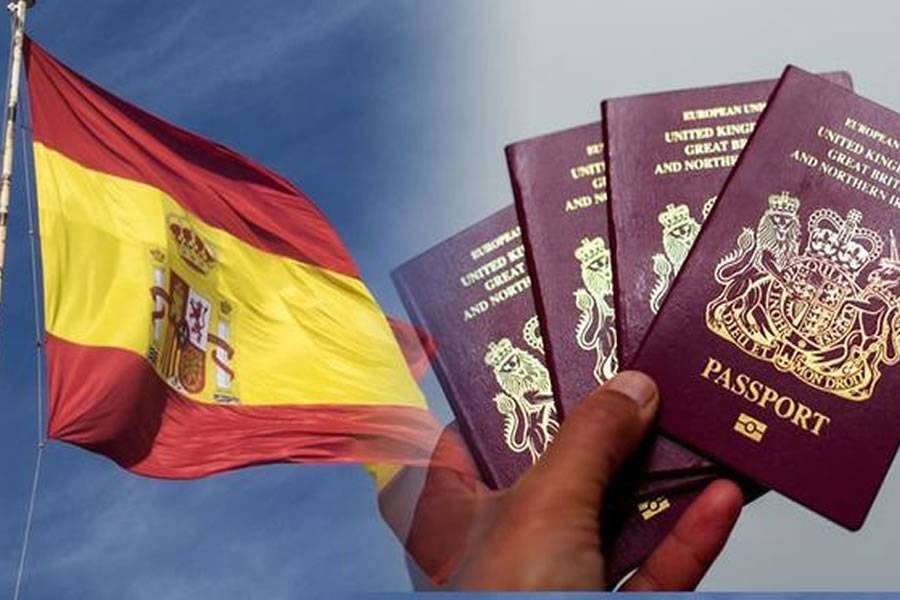Moving to Spain: How easy is it for Brits to move to the sun post-Brexit?
- 16-04-2023
- National
- Canarian Weekly
How easy, or difficult, is it to move to Spain from the UK given that freedom of movement ended with Brexit? Several Britons who have made the move, have highlighted the problems that emerged as well as the time and costs involved.
A recent survey shows that the most popular way by far for Brits to move to Spain, including the Canary Islands, post-Brexit, was via the Non-Lucrative Visa or NLV. Several respondents said they applied for NLV, which is a one-year visa (that can be renewed), which allows non-EU citizens to live in Spain by demonstrating that they have sufficient financial means for themselves and, if applicable, their families.
Crucially, however, you are not allowed to work while on this visa and have to prove that your income comes from passive sources, such as renting out a property back in your home country.
The NLV is also one of the most expensive ways to move to Spain. You must show that you have savings of at least €2,400 per month, and more for extra family members without being allowed to earn anything here.
Wendy Hendry who moved to Alicante from Scotland said that the process of applying took around four to five months, while Terry Mulchinock said it took him a total of six months. Howard Evans who moved to the Valencia area on the other hand, was incredibly lucky when it took him just one week to apply because it was during the height of the pandemic in February 2021.
There was, however, a split between those who applied for the NLV themselves and those who used a lawyer to help them with their application.
Shirley Johnson who moved to Galicia from Lancashire said: "I made the application myself (many people use lawyers and it costs thousands of pounds). There is guidance from forums and also from the Spanish Embassy in Manchester. I was not rejected".
While Wendy Hendry agreed that you “should try and apply yourself because companies who offer these services will try and rip you off”, both Terry Mulchinock and Howard Evans disagreed and said that you should use the services of a lawyer to help you with your application instead.
Mulchinock said: “We employed a lawyer who was very competent, copied our paperwork, bank statements, got police checks, medical forms, etc, nothing was difficult”. Evans agreed that the whole process was quite straight forward and he was pleasantly surprised because of his “excellent solicitor”.
Those who applied for the NLV said they spent anywhere from €2,000 to around €3,500 on the application, including all the lawyers' fees and paperwork, while those who paid the higher amount also included the cost of the private health care needed for the application.
"With a year's private health care for two people all in was nearly £7,000" explained Mulchinock. Evans said he paid a little less, but without health insurance, approximately €3,000 to the Spanish solicitor.
But, although the NLV was the most popular way, it wasn’t the only way that Brits have managed to move to Spain post-Brexit. Some people said they applied for visas to live in Spain due to family connections, either through the family reunification visa or by getting a residence card by being a family member of an EU citizen.
The family reunification visa allows non-EU nationals to bring family members to live with them in Spain, provided that they have already been legally resident in Spain for at least one year, while the residence card is for family members of EU citizens such as spouses, partners, dependent children, and dependent parents.
Half of these people said that their applications were relatively straightforward, while half said it was a lot more difficult than expected.
Working visas:
Several other people said they found other ways to legally move to Spain since Brexit had come into force. Some said they applied for visas for highly skilled workers through their companies, but that these were mostly for temporary periods lasting around six months.
Even though the companies mainly organised and paid for these types of visas, the applicants said they were very expensive and it was very difficult having to have all their certificates and documents legalised by an apostille, translated, then the legal fees, and the visa charges.
Overall, most of the people who were surveyed said they had found the process of moving to Spain post-Brexit very challenging and a lot more difficult than they had originally expected. The majority agreed that using a lawyer definitely helped and urged others to find a good one and do the same.
Those who did the applications themselves encouraged others to do as much research as they could by using forums for help. Others simply thought the process was too difficult and urged Britons to fight back against the situation if they want to be able to move to other EU countries.
"Put pressure on the British government to join Single Market in a similar way to Switzerland or Norway, with freedom of movement, otherwise, you should have A LOT of patience, time and money," they said.
Other articles that may interest you...
Trending
Most Read Articles
Featured Videos
TributoFest: Michael Buble promo 14.02.2026
- 30-01-2026
TEAs 2025 Highlights
- 17-11-2025



























































